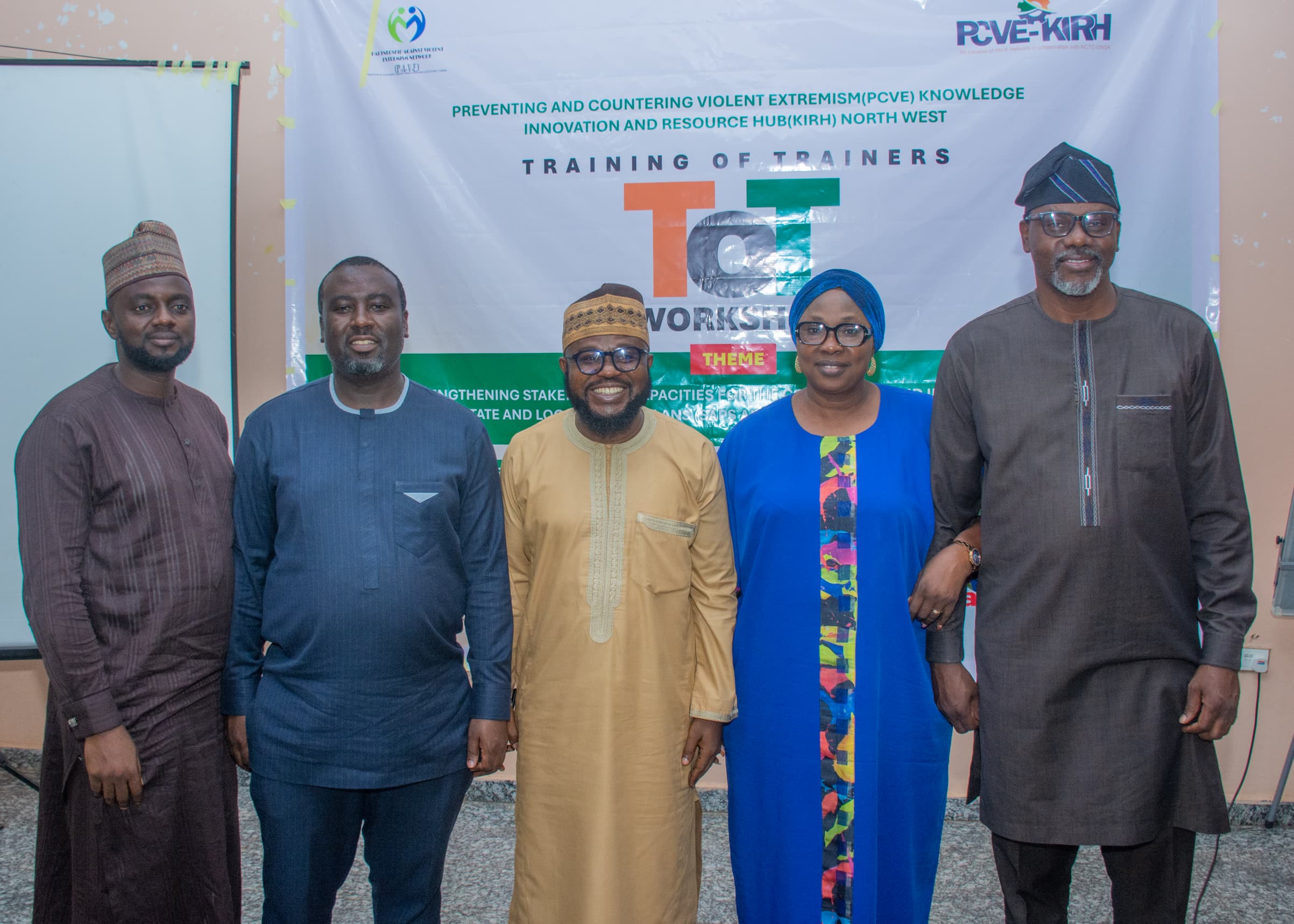By Habibu Muhammad Harisu
Stakeholders in the North-West have pledged to strengthen their partnership and collaboration to address violent extremism and build community resilience against all forms of reactiveness.
They made the commitments during a four-day workshop in Sokoto.
The training was organised by the Partnership Against Violent Extremism (PAVE) Network and Preventing and Counter Violent Extremism-Knowledge Innovation Resource Hub supported by ActionAid and Global Community Engagement and Resilient Fund.
A participant, Wazirin Gwandu, a traditional ruler from Kebbi, Abdullahi Umar, described the engagement as relevant in unravelling the root causes of conflicts and fine-tuning the mitigation process.
Mr Umar said that the calibre of participants, which includes representatives of security agencies, government officials, civil society organisations, community leaders, and groups who were directly affected by conflicts, would provide a roadmap for lasting solutions.
He explained that conflicts in the northern states were rooted in farmer-herder clashes, which metamorphosed into different forms such as banditry, kidnapping for ransom and others.
The traditional ruler stresses that involving community inhabitants and government officials in solving lingering conflicts would serve as the best solution, as the present training provides.
He urged the participants to ensure the right step-down training in their respective locations to achieve the desired impacts.
A lead facilitator and member of PCVE, Lanre Aladeitan, said the capacity building was designed on multidimensional approaches, providing action plans that would be usable to prevent diverse conflicts in the affected areas.
Mr Aladeitan noted that the content of the action plans catered to local needs and provided local solutions to challenges, utilising the necessary skills.
He underscored the importance of living in peace and harmony as a catalyst for every development. He called for increased synergy among government and non-government actors to actualise the blueprint.
He explained that rehabilitation and reintegration processes were involved in the strategies and emphasised the need to deploy a non-kinetic approach to resolve conflicts.
He also highlighted the need to reinvigorate the roles of traditional institutions, implement meaningful initiatives against poverty, and develop economic empowerment schemes alongside enhancing education systems at all levels.
Ahmad Surajo, the regional manager of the North-East Youth Initiative for Development, said the peaceful initiative should be a collective responsibility of all citizens and urged stakeholders to implement community-based approaches to finding solutions to conflicts.
Mr Surajo said states in the North-West were currently experiencing increased activities of violent extremist groups with worsening socio-economic situations.
Credit| NAN

